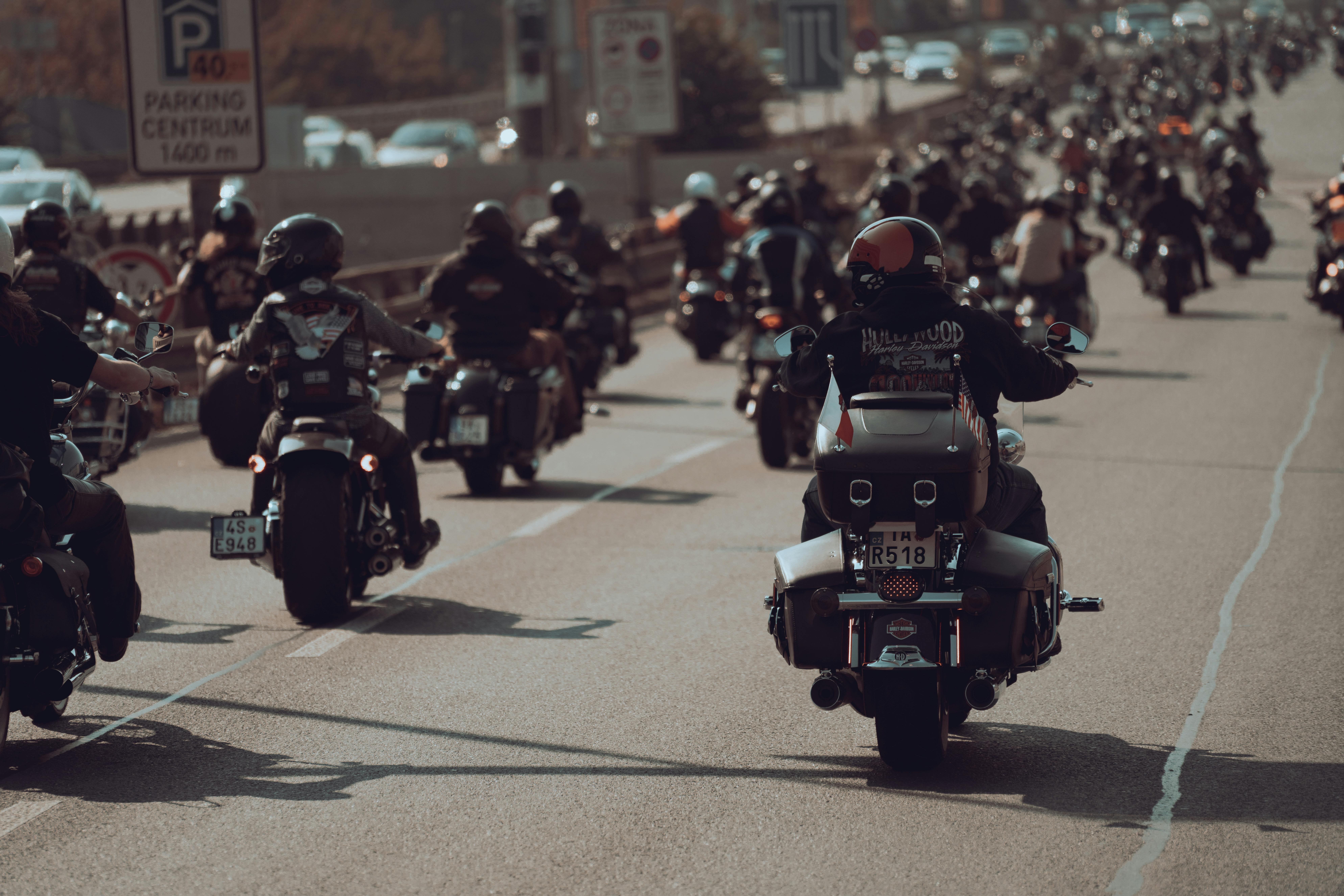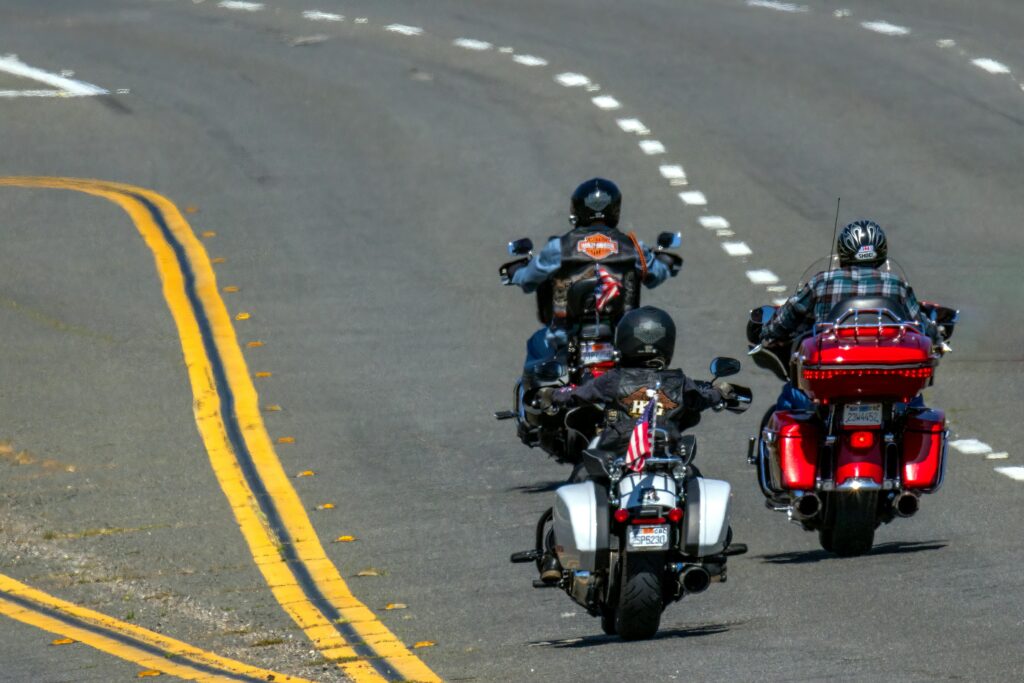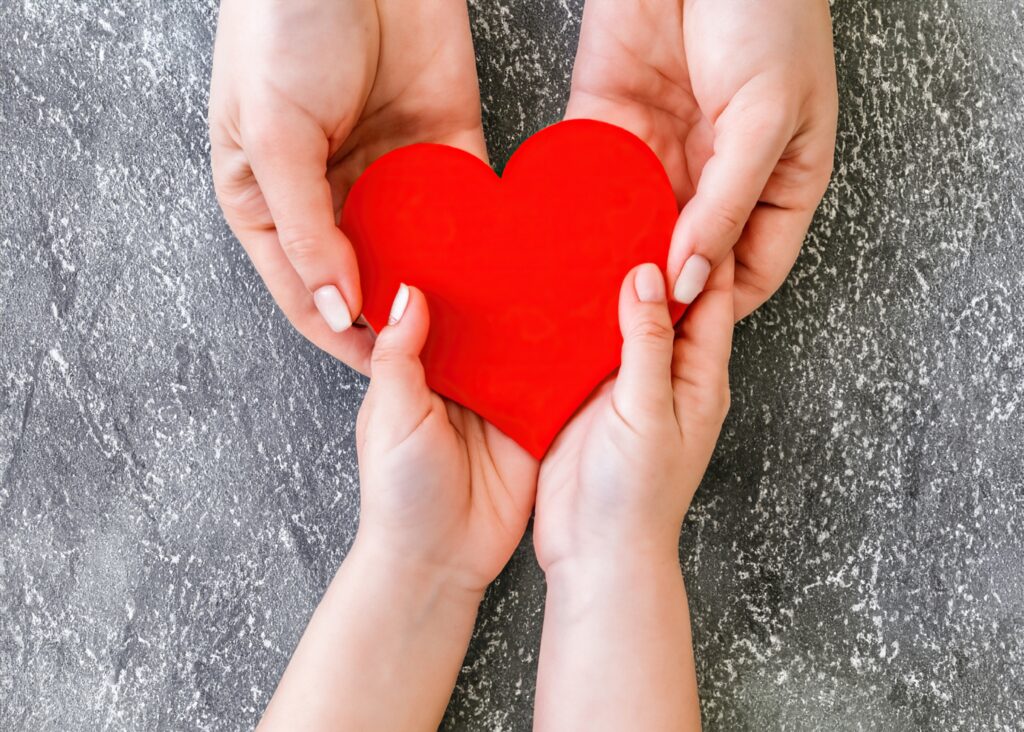Story of a Six-Year-Old Boy Who Loved Motorcycles, Got Cancer, and Whose Parents Asked Online if Anyone Could Ride by Their House and Cheer Him Up. Nearly 15,000 Bikers Showed Up

What if the loudest sound in the world was also the most compassionate?
We often associate noise with chaos sirens, shouting, the endless roar of traffic. But sometimes, noise becomes something else entirely. It becomes a language of love, a thunderous outcry from strangers saying, “You are not alone.” That’s what happened on a summer day in Germany, when 15,000 bikers revved their engines not for show, not for sport, but for a little boy whose heart beat for motorcycles and was slowly fading under the weight of terminal cancer.
Six-year-old Kilian Sass didn’t ask for a miracle. He asked for a moment. A moment to feel the rumble of bikes outside his window one last time. His parents, bracing for goodbye, reached out with a simple plea: “Will anyone ride by our house for Kilian?” What they got back wasn’t just a few motorcycles. It was a movement. A symphony of steel and spirit that roared across towns and borders, shaking the ground and lifting a family’s spirit in its wake.
This is not just a story about a dying wish granted. It’s a story about what happens when empathy goes viral, when community shatters expectation, and when love shows up not quietly but loud enough to shake the sky.
In Germany, a 6-year old boy who loved motorcycles was diagnosed with cancer.
— Goodable (@Goodable) July 25, 2021
His family posted online asking if anyone could ride their motorbike past their home, to cheer him up. They thought 20 or 30 people would come.
Nearly 15,000 bikers showed up.
♥️ 🇩🇪 pic.twitter.com/pmfztKf094
The Birth of “Krach für Kilian”
In the quiet village of Rhauderfehn, where the roads are narrow and life moves at a slower pace, a father sat with a heavy heart and a simple hope. His son, Kilian, just six years old, was running out of time. The cancer lymphoma was unforgiving. Treatments had failed. The prognosis was final. And so, with nothing left to give but love, Kilian’s father turned to the only community he knew might understand his son’s passion: bikers.
He was a member of a 24-person local motorcycle group, bound not just by their love of riding, but by a sense of brotherhood. When he shared Kilian’s wish to hear the sound of motorcycles roaring past their home one member, Ralf Pietsch, took it to heart. But Ralf didn’t just share the request within the group. He turned it into a movement.
In Germany, a 6-year-old boy battling terminal cancer had one simple dream: to see motorcycles. His parents, hoping to lift his spirits, posted a heartfelt request online asking if a few bikers could ride by their house to cheer him up. They never expected what would follow. pic.twitter.com/cAVlROA2WB
— NiiAkweiMC (@NiiAkweiMC) July 20, 2025
With a heartfelt voice message from Kilian himself as the centerpiece, Pietsch launched a campaign on social media: “Krach für Kilian,” which translates to “Noise for Kilian.” The message was simple but stirring: “Five minutes of your time for the last smile of a little fighter.” It wasn’t a slick production. It wasn’t sponsored. It was raw, real, and painfully human. And that’s what made it unstoppable.
In just four days, the campaign caught fire. The hashtag #KrachfürKilian spread across Germany. Biker forums lit up. Instagram pages and Facebook groups shared the post like wildfire. People who had never met Kilian, who didn’t even live nearby, began marking their calendars and tuning their engines.
What started as a father’s quiet cry for a gesture of comfort had become a full-blown phenomenon. It wasn’t just a ride anymore it was a mission. Riders weren’t just showing up to honor a boy; they were showing up to remind the world what empathy looks like when it’s in motion.
The Day the Streets Roared

July 24, 2021, began like any other day in the small German town of Rhauderfehn but it didn’t stay that way for long.
By 9:30 a.m., the first biker rolled past Kilian’s house, the deep rumble of the engine cutting through the quiet morning air. Then came another. And another. Within minutes, the streets were vibrating with sound, echoing like thunder across the countryside. By midday, what had been expected to be a gathering of a few dozen motorcycles had transformed into something almost surreal: a procession of more than 15,000 bikers, flooding the narrow roads and open fields surrounding Kilian’s home.
The scene was almost cinematic waves of motorcycles from every corner of Germany and beyond, stretching across the region, engines growling like lions in unison. Some riders came from over 300 miles away. Many wore patches honoring Kilian. Others carried flags, messages of hope, or symbols of solidarity. The air was filled with the steady roar of engines, the sharp beeping of horns, and the spontaneous hollers of support shouted into the summer sky.
Inside the house, Kilian sat bundled near the window, wrapped in blankets, his small body weakened but his spirit ignited. As each wave of bikers passed, his eyes lit up. He smiled. He cheered. He screamed with joy. For those precious hours, he wasn’t just a child facing the inevitable he was the center of something magnificent. A symphony of steel and humanity playing just for him.
His parents watched, overwhelmed, holding hands as tears ran freely. “We never expected so many people to come,” said Markus Kruse, one of the organizers. “I hope that Kilian and his family can draw strength from it.” And they did. Everyone did.
The ride continued until 5 p.m., as thousands of motorcycles paraded through three designated routes, each one like a heartbeat pounding for Kilian. Bystanders gathered along the streets, many in tears, silently absorbing the power of what they were witnessing.
What Bikers Taught the World That Day

To many, bikers are often misunderstood. Popular culture has long painted them as rough, intimidating, outsiders on the fringes of society leather jackets, roaring engines, defiant glares. But on that July day in Rhauderfehn, those very same bikers rewrote the narrative not with words, but with action. They showed the world that underneath the roar of their engines beats some of the biggest, kindest hearts on the planet.
What the world witnessed wasn’t just a tribute it was a lesson in compassion. These riders didn’t know Kilian. Most had never spoken to his family, never met his friends, never even set foot in his town. And yet, they came. Some rode hundreds of miles, others took time off work, organized their clubs, and altered their lives just to ride past a little boy’s window and give him a reason to smile.
There was no fame waiting at the end. No reward. Just the quiet conviction that if someone needs love, you show up.
“We have once again more than clearly demonstrated that bikers are not ‘bad, loud rockers’ but have the biggest hearts on Earth,” said Ralf Pietsch, the biker who helped launch the campaign. “This cross-city cohesion exists only among bikers.”
It wasn’t just about Kilian that day. It was about every person who’s ever felt helpless, every parent who’s faced heartbreak, every community that’s wondered if anyone would care. The bikers answered those questions not with noise, but with presence.
Many of them were parents themselves. People like Kim Hansen, who drove 370 miles to be there, said, “I’ve lost a six-year-old son myself. I know how it must feel for the parents.” That day, the lines between strangers and family blurred. People didn’t need to know each other to care for one another.
The Power of Collective Kindness

There’s something undeniably powerful about a single act of kindness but when that kindness multiplies, when it becomes collective, it transforms into something far greater: a force.
What began as one child’s final wish shared through a small biker group in a quiet German town ignited a chain reaction across cities, regions, and borders. It spread through social media not as outrage or controversy, but as hope. And that’s rare. In a digital age where most viral stories lean on shock value or conflict, Krach für Kilian became a reminder that compassion, too, can go viral.
Fifteen thousand strangers didn’t show up because they had to. They weren’t paid, persuaded, or obligated. They showed up because empathy moved them to action. It wasn’t just the roar of engines that day—it was the echo of something deeper: the belief that no child should feel forgotten. That even in the face of terminal illness, joy is still worth fighting for.
This is the kind of moment that psychologists and sociologists refer to as “emergent altruism” when spontaneous acts of generosity ripple through communities without any centralized direction. Studies show that when people witness acts of kindness, they’re more likely to pay it forward. Compassion is contagious. And the Noise for Kilian campaign proved it on a global scale.
Even beyond the streets of Rhauderfehn, this event stirred hearts worldwide. Videos circulated online, viewed millions of times. Comments poured in from people across continents, some who had lost loved ones, others who simply needed a reason to believe in humanity again.
A Moment of Joy, A Legacy of Love

Kilian Sass passed away one month after the bikers came.
His time on earth was far too short, and his battle against lymphoma was heartbreakingly unwinnable. But in those final days, he experienced something many people go a lifetime without: a moment of pure, unfiltered joy a joy so immense it shook the streets, echoed through towns, and etched itself into the hearts of thousands.
As the engines rumbled by his window that day, Kilian didn’t look like a boy dying. He looked alive. His smile stretched wide, his eyes lit up, and his laughter cut through the heaviness like sunshine breaking through clouds. That moment those hours of thunderous love became a sanctuary of happiness not just for him, but for his family, his community, and everyone watching from afar.
“Kilian himself watched the drive-by with a smile and one or two screams of joy,” Ralf Pietsch recalled. “It was a great, long, and meaningful ride.”
And that joy didn’t end with him.

Kilian’s legacy now lives in every rider who showed up, every neighbor who cheered from the sidewalk, every stranger who wept watching the video online. His story has been shared not for pity, but as a testament a living example of how one child’s simple dream can stir thousands to action, can redefine a community, can shatter stereotypes, and can amplify love.
Many of the bikers who rode for Kilian say they carry him with them. Some wear patches in his honor. Others have shared that they ride differently now with more awareness, more gratitude, and more purpose. As Pietsch said, no campaign he had ever helped organize matched the emotional depth or scale of Noise for Kilian.
In life, Kilian rode little bikes. In death, he led 15,000.
His body may have grown quiet, but the roar he inspired still moves. It’s in every act of kindness that asks nothing in return. It’s in every parent holding their child a little tighter. It’s in every person who sees a call for help and doesn’t scroll past.
Because what Kilian left behind wasn’t just a memory it was a movement of the heart.
When Love Shows Up Loud
What does it mean to be heard? For a six-year-old boy named Kilian, it meant the thunder of 15,000 engines rolling through his small town. It meant strangers showing up not out of obligation, but out of love. It meant his wish didn’t echo into silence it sparked a roar.
Kilian’s story isn’t just a tearjerker. It’s a challenge. It’s a reminder that in a world often exhausted by headlines of division, despair, and disconnection, there are still moments where humanity rises loud, unified, and beautiful. Moments when love doesn’t tiptoe in quietly but crashes through the gates with purpose.
We live in a time where it’s easy to feel helpless. But Kilian’s story proves something powerful: you don’t need to know someone to care deeply about them. You don’t need to solve everything you just need to show up. With your time. Your presence. Your compassion.
Maybe you don’t ride a motorcycle. Maybe you’ll never be part of a 15,000-strong parade. But every day, people around you are whispering wishes. Quiet hopes. Unspoken needs. And you yes, you have the power to make a little noise on their behalf.
So the next time you hear someone’s silent plea, don’t ignore it. Don’t wait for someone else.
Be the engine that starts the movement.
Because real love isn’t always soft.
Sometimes, it roars.
Loading...

